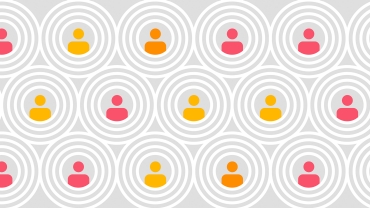
National ID vs the “greatest” poverty
PHP200bn divided by our population equals PHP1,800 for every Filipino. Or divide the PHP200bn by the estimated number of families that’s PHP7,200 per family. Mathematically, there is room even for the middle class living in subdivisions but who are out of work to receive support.
I hear instantaneous reactions from our household staff each time they learn that a relative or a senior citizen in-law in their barangay in the province, has been skipped in the distribution of calamity subsidy. I may not have heard their actual cries, but I can imagine their anger, if not despair, that their chances of eating at least two meals a day, or having money to buy medication, depend on the discretion of barangay officials who are distributing cash from the national government.
Right now, the closest thing we have to a system of building a national database that says who gets support and who does not is the Department of Social Welfare and Development’s (DSWD) National Household Targeting System for Poverty Reduction (NHTS-PR), or “Listahanan”. This system identifies who and where the poor are in the country, and gives direction on the use of government funds, like the Pantawid Pamilyang Pilipino Program (4Ps).
The downside is that the national list belabored by DSWD staff is already a few years old and there could be much discrepancy today between the national or DSWD list and the supposedly more updated local government unit (LGU) list. The LGU list comes from different barangays where the legwork was done to find the resident poor in their units. Unfortunately, that list may also not be accurate. Some barangay officials in the provinces, I heard, are even shrewd enough to secure signatures of gullible residents even if the latter received nothing. And we are all too familiar with families in different LGUs only receiving a kilo of rice and a can of sardines as support. Some would receive more than that but nowhere near the amounts that they actually deserve under the national allocation.
The accounting of who received what, or who pocketed how much is tough because schemers and scammers can take advantage of the manual system that is assisted by the lack of a national identification system that can help prevent fraud.
The above issue alone of getting government support to the right people makes the implementation of the National Identification System Act (RA 11055 of 2018) really urgent. We have to be wise and realistic, though. It need not be compulsory for everyone in Phase 1, but it needs to be compulsory for the poor sector - those households that would need government support and subsidy. Making this sector comply will be a non-issue, because who wouldn’t register as a condition for receiving cash or relief? These families would not mind disclosing their income level because that data will qualify them to receive subsidies. The national ID system can already begin to work at Phase 1, which is designed to get basic information from registrants. But the core of the national ID system would be in Phase 2 where, armed with the right equipment and software, the government can get the unique and fraud-proof signature information from owners of the ID such as facial image, fingerprints and palm prints, iris scans, and maybe later, even DNA.
The country is actually not reinventing the wheel here as we are learning from what India did with their Aadhaar card, which allowed all card holders to open a bank account even with zero cash. Now that is inclusion because with a bank in the name of the beneficiary, money goes there directly without need of a middleman or government intervention.
Make no mistake: the Philippine national ID system is good for everyone and anyone with a political view contradicting it for privacy or security issues forgets that we already have passports, driver’s licenses and Social Security System (SSS) IDs where all important information of us, as individuals, have already been collected. And with social media, we are already very exposed. The national ID system that would harmonize all our government-issued IDs into our unique individual signatures can give us nothing but protection, equal access to government services, and faster processing of loan applications (because your data since birth need not be asked repeatedly each time you fill out a form).
The average person can avoid being an identity crime victim, such as that public school teacher who was so proud of his achievement that he posted his Professional Regulation Commission (PRC) ID on Facebook. Then he suffered salary deductions for three loans he did not make. His PRC ID was used to secure in his name loans from different banks.
Or this case of the SSS claimant who had falsified documents to claim death benefits from a member who is actually alive and kicking. The fraudster filed the claim by producing a fake funeral receipt, a falsified death certificate, and fake copies of the marriage certificate and birth certificate of “their” child.
Even electioneering can be prevented as no one can be prioritized or deselected as recipient on the basis of political affiliation.
The partial implementation of the national ID system today, beginning with the poor sector, can already improve the way the government takes care of its people. For those who, during this current crisis, pocketed government money that is meant for feeding and helping others survive - they suffer from the greatest moral poverty. They will have their day if not in court, then in final judgment.
Alexander B. Cabrera is chairman and senior partner of Isla Lipana & Co./PwC Philippines and chairman of Integrity Initiative Inc., a non-profit organization that promotes common ethical and acceptable integrity standards. Email your comments and questions to aseasyasABC@ph.pwc.com. This content is for general information purposes only, and should not be used as a substitute for consultation with professional advisors.
Contact us







